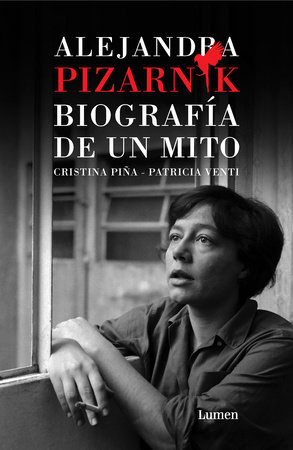
Alejandra Pizarnik. Biografía de un mito / Alejandra Pizarnik: Biography of a Myth
Cristina Sara Piña; Patricia Venti
Paperback
April 26, 2022 | ISBN 9788426407924
AmazonBarnes & NobleBooks A MillionBookshop.orgHudson BooksellersPowell'sTargetWalmart
About the Book
La obra y la influencia de Alejandra Pizarnik no dejan de crecer. Numerosos lectores en todo el mundo mantienen viva su literatura y cada vez más investigadores se dedican a estudiar a la aún hoy enigmática poeta.
Cristina Piña escribió una primera versión de esta biografía hace treinta años y ahora, en colaboración con Patricia Venti , publican esta edición ampliada con una enorme cantidad de documentación nueva. Las autoras consultaron los diarios completos de la escritora, depositados en la Biblioteca de la Universidad de Princeton, junto con sus cuadernos, borradores, correspondencia y trabajos plásticos; mantuvieron largas conversaciones con amigos de la poeta y, sobre todo, con su hermana, Myriam; viajaron a París para entrevistar a la familia de los hermanos del padre, Elías Pizarnik, uno de los cuales, Simón, alojó a Alejandra en varias ocasiones en la casa de Chatenay-Malabry durante su estadía de casi cuatro años en la ciudad. También tuvieron acceso a los papeles de Manuel Mujica Lainez y Silvina Ocampo en Princeton, y a los de Djuna Barnes, en la Universidad de Maryland, vinculados con la poeta.
Alejandra Pizarnik. Biografía de un mito se suma a la edición de toda la obra de la escritora en el sello Lumen.
ENGLISH DESCRIPTION
Alejandra Pizarnik’s definitive biography, with new materials, documents, and interviews. Updated, extended, and revisited version of the only biography by an Argentinian author of the most disruptive poet of the twentieth century in the Spanish language.
The work and influence of Alejandra Pizarnik continue to grow. Numerous readers from all around the world keep her literature alive, and more and more researchers study this still enigmatic poet.
Cristina Piña wrote a first version of this biography thirty years ago, and today, collaborating with Patricia Venti, they render this extended edition with a huge number of new materials. The authors referred to the poet’s complete journals, kept in Princeton University Library, along with her notebooks, manuscripts, letters, and plastic works. They had long conversations with friends of the poet, and specially with her sister, Myriam. They traveled to Paris to interview the family of her father’s—Elías Pizarnik—brothers. One of them, Simón, welcomed Alejandra on several occasions at his Chatenay-Malabry home during her nearly four-year stay in the city. They also had access to Manuel Mujica Lainez and Silvina Ocampo’s papers at Princeton, and to Djuna Barnes’ at the University of Maryland, the three of them linked to the poet.
Alejandra Pizarnik: Biography of a Myth joins the author’s published works under the Lumen imprint.


